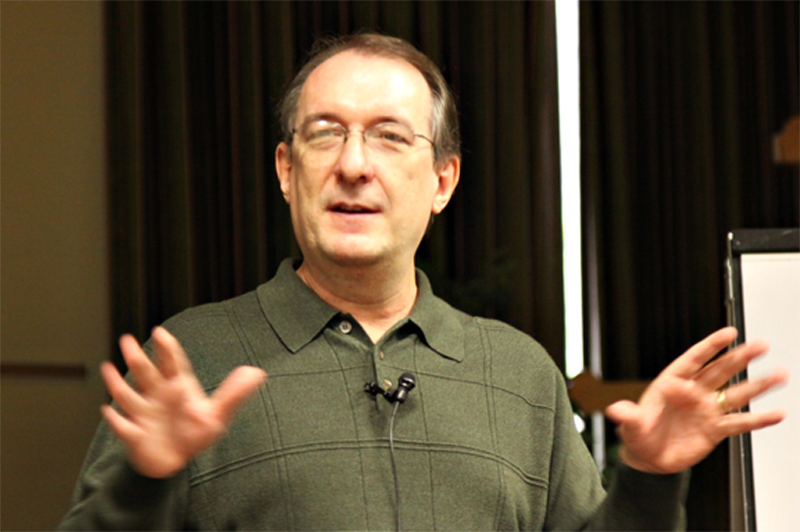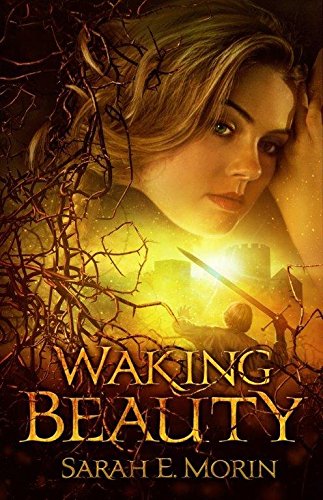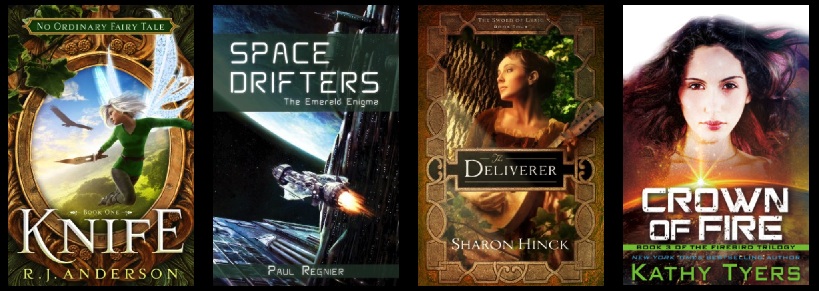I had the opportunity to interview Steve Laube, owner and publisher of Enclave Publishing. The quote on Envlave’s site sums it up nicely. “All of the novels we publish are in some real sense Christian. They may not spell out the plan of salvation or show someone coming to Christ, but the Christian component will be there, and it will be real.” Steve was nice enough to respond to my questions and share insights about his unique publishing company.
Q1. How has the transition from Marcher Lord Press into Enclave publishing progressed? Are you on track to where you want to take the company? Where would you like to see Enclave Publishing in the next three years? Are there specific goals that you would like to share?
It has been 16 months since I took over and we are on track. We rebranded the company and have released nine new books with four more coming in Summer and four more in Fall.
That is an aggressive program and is quite exciting. The future suggests that we will slowly but surely find many new readers of our unique books. By now, we have proven that we plan to be around for a long time.
Q2. With your extensive background in publishing and as head of the Steve Laube Agency, was is it that drives you with regard to Enclave Publishing? Is it book sales to an underserved market? Is it something more, perhaps a personal mission that fuels you? Where does evangelizing and bringing people to Christ fall on the Enclave priority meter?
I have always been a fan of Science Fiction and Fantasy. Been reading the genre voraciously for the last 40+ years (starting with the Barsoom series by Edgar Rice Burroughs when I was in high school).

Back in my days as a manager of a Christian bookstore, I was always disappointed by the limited offerings in that category. Then, when I acquired books for Bethany House, it took quite some time to convince management that there was potential in the genre. They agreed and Karen Hancock’s books, for example, are still with BHP and still selling.
I was glad when Jeff Gerke launched Marcher Lord Press in 2008 because I had been thinking about doing something similar. But you asked about a personal mission. I suppose you could say that is true. Those who know me, know that I’ve been an advocate of this type of book forever. In a small way, I helped raise the awareness of the genre in Christian publishing.
As for the “priority meter”? I believe it is incumbent upon every believer to spread the Good News of Jesus Christ. But that same mission is not necessarily a corporate one. For example, the Greens who own Hobby Lobby are amazing Christian people, but no one would say that the Hobby Lobby stores are “evangelizing.” That would be a disconnect. But for Enclave Publishing our content is created by people with a Christian worldview. As such, their stories are informed by themes of redemption. You stated it well at the top of the interview quoting from our web site. “All of the novels we publish are in some real sense Christian. They may not spell out the plan of salvation or show someone coming to Christ, but the Christian component will be there, and it will be real.”
Q3. In the about section of the Enclave website it states, “Our stories can seem strange but underneath they contain powerful expressions of Redemption, Truth, and Hope.” How might these stories seem “strange,” how might they differ from typical Christian fiction titles?
That depends on your definition of “typical.” It is a myth that there are “typical” Christian books. It is far to easy to lump them all together and say they are all “sweet vapid romances devoid of realism.” That is usually a critique made by those who don’t like romance novels in the first place. When pressed such critics have to admit that Ted Dekker doesn’t fit that mold. But I have to add, neither does Don Brown, or Glen Meade, or Tosca Lee, or Ronie Kendig…and on and on. Don’t get me started….
How might our stories seem strange? KNIFE by R. J. Anderson is coming this Summer. The main characters are fairies. They live in a big tree. But they are dying off and their “warrior,” whose name is Knife, begins to explore the world beyond their small borders. It is a story of hope, sacrifice, and adventure.
 Or what about WAKING BEAUTY by Sarah E Morin. An epic fantasy that retells the story of Sleeping Beauty by asking the question “What if Sleeping Beauty didn’t want to wake up?”
Or what about WAKING BEAUTY by Sarah E Morin. An epic fantasy that retells the story of Sleeping Beauty by asking the question “What if Sleeping Beauty didn’t want to wake up?”
Within the Science-Fiction and Fantasy genre those might be seen as “typical” and not “strange.” So it is the nature of the genre itself that suggests our unique approach to storytelling.
Q4. I realize the term “edgy” may mean different things to different people, but the term seems to connote that although a book is grounded in Christianity and supports Christian beliefs, it may contain violence, offensive language, sexual situations, or characters that may offend a conservative Christian. In your interpretation of the term, would you say there is an “edgy” component to some of the books published by Enclave?
Not as you have defined it. You will not find offensive language or sexual situations in our books. Those are two triggers where I will not compromise. That doesn’t mean there cannot be sensuality, as if sexual tension doesn’t exist. That would be foolish. But there is no place for lurid descriptions of anatomy or having the reader “see” or “hear” things that are best left to the privacy of the bedroom of a married couple. I’m well aware that there are those who would disagree with me and resent any boundaries. They are free to express their opinions and write their books. But it doesn’t mean I have to publish them.
I doubt anyone who reads our books will come away disappointed and say “I wish they had cursed more and ripped off their shirts.” Instead, I suspect they will be more apt to criticize either the story itself and whether it delivered on its promise to be a great read. Or they will love it and be glad they had read the book.
Q5. Enclaves books have varying degrees of a Christian component. Are all of Enclave’s readers Christians, or is there a secular component that enjoys these books as well? What percentage of readers would you say are non-Christians?
That is an impossible question to answer. We have no idea of the faith journey of our readers. We have been giving away a number of titles that are book one in a series. One even rose to #4 on Amazon’s general list for all fiction. That suggests that there could be a lot of potential readers who are not part of the Christian faith. I hope they read the books they download and enjoy the storylines.
Q6. Do you have a favorite Enclave novel? Why is it special to you?
That is a bit like asking a parent which child is their favorite. If I say anything I will delight some and disappoint others.
What I can say is that there are great books by some great writers. Some were acquired before I bought the company, some have joined under my management. I dare say we have books that can stand up to the market’s scrutiny in quality, storytelling, and delight.
Q7. What brick and mortar bookstores carry Enclave titles?
The top 100 Lifeway stores have our latest releases on their shelves. Other stores are discovering our books as well. Some may be ordering from their distributors so we do not know which stores they are, all we see is that sale made by a distributor (like Ingram).
Q8. As Enclave Publishing’s catalog continues to grow, along with the demand for Christian fantasy, science fiction, and supernatural stories, what advice would you give to an author looking to submit their work to Enclave for consideration?
It will sound cliched, but the truth is unchanged. Write the best book you possibly can. Learn the craft of great fiction. I hear or see so many amazing and creative story ideas, but the writer is unable to execute them with quality.
If you want to see the caliber of writers we acquire, buy our latest releases and read them. And if you don’t want to buy them at least look at the sample provided by the “look inside” feature online.
Q9. Is there anything that I haven’t asked, that you would like to share?
Our Summer books have just been announced and are available for pre-order. Look for Space Drifters: The Emerald Enigma by Paul Regnier; Knife by R.J. Anderson; Crown of Fire (book three of the Firebird trilogy) by Kathy Tyers; and Deliverer (book four and final one in the Sword of Lyric series) by Sharon Hinck.
Many thanks to Steve Laube for taking the time to share the Enclave story and for bringing great Christian fiction novels to both Christian and non-Christian readers. For more information about Enclave Publishing and their available titles, visit their website http://www.enclavepublishing.com.






I am saddened by Mr. Laube’s response to the “edgy” question, in particular when he says, “there is no place for lurid descriptions of anatomy or … things that are best left to the privacy of the bedroom of a married couple.” When he speaks of his willingness to publish stories with sensuality and sexual tension, that’s fine as far as it goes. And, of course, he is free to publish any book he chooses. But when he conflates “lurid” with the privacy of a married couple’s sex life, he is denigrating, in my opinion, the biblical evidence of God’s vision for healthy, pleasurable sex and intimacy that married Christians are meant to enjoy for a lifetime.
As I see it, his assumption appears to be based on the same tired-old dogma that the Church has perpetuated for over 2,000 years when it comes to sex: sex is sinful, sex is dirty, sex is taboo, sex is shameful. These dire warnings have been drummed into people for ages, and it’s time to examine why and how to reverse repeating them over and over. Go ahead, check your Bible, then ask any couple who is willing to admit how much and how often they struggle with sexuality and intimacy (a vast number that you can verify by typing in your search bar, “Sexless Christian Marriage”) and you will discover how widespread this damaging teaching is and the endless grief it has generated.
Fortunately, there exists a growing counter movement to these stale attitudes, as evidenced by this ECF.com website. Curious? Then check out these biblically grounded books: Sacred Sex by Tim Alan Gardner, Real Marriage by Mark and Grace Driscoll, and The Erotic Word by David Carr.
Some of my posts on this topic include: Shame vs. Libido? , Why I Write Edgy Christian Fiction, and Did the Church Get Sex All Wrong?? (http://jzhowardbooks.com/blog-2/)
I have also written All of Me Wants All of You, a fictional story which cuts to the heart of sex in Christian marriages. It is not “lurid.” While I respect Mr. Laube’s choice to publish what appears to be “squeaky clean” Christian science fiction and fantasy, I think Enclave and the community at large would greatly benefit from publishing un-sanitized books that could serve to help bring more readers to know Christ, rather than to simply nurture and entertain conservative Christian readers.
When written from a place of love and a sincere desire to help others, healthy sexual relationships are a completely valid topic for any author to address, Christian or otherwise. It is important to keep an open mind and not dismiss something that might actually contain a message that brings a couple closer to each other and to God. The challenge is to write about intimacy in a marriage in a way that honors God and the marriage vow while dealing with real, human issues of shame, awkwardness, ignorance, pride and childhood scars.
Obviously, there are authors who write about sex merely for prurient reasons and want to make money this way simply because ‘sex sells’. The authors who write about sex so that their readers might see themselves in the characters and be inspired to make changes for a better relationship with their spouse are in another category altogether. Of course, it is entirely up to each publisher to decide what is the right fit for their audience. Having said that, it would be unfortunate to turn away something that might be of great benefit to readers because sexual intimacy in a marriage is part of the narrative. The publisher and reader alike will know immediately if those parts are meant to be helpful or merely salacious.
I applaud Steve Laube for working to get sci-fi and fantasy included in the realm of Christian fiction. As a lover of all things science-fiction, I look forward to his upcoming publications that incorporate God-centered messages with supernatural storytelling. However, is it just me, or does Christian fiction need to be fleshed out and matured in every genre? Every time I look for a new Christian novel on the shelves, it’s either about Amish life or life in the 1700s. Not that there’s anything wrong with those cultures or time periods, but God can (and DOES) exist in the contemporary! “Christian romance” doesn’t have to translate to outdated periods from the past. It can, and does exist in the here-and-now. And, in my opinion, we need more Christian fiction that readers can relate to. Further, whenever I finally choose to pick a new book from those over-saturated genres, the characters seem way too flat. Pages don’t need to be littered with obscenities or sex scenes to make them more realistic, but they do need to have an element of uncertainty, doubt, danger, and/or insecurity. The whole, “I have a big problem, but I trust in God” comes across as a little shallow and unrealistic. What makes characters compelling in secular fiction is an inhuman amount of compassion, strength, and fight for something greater than themselves. (I’m thinking Katniss Everdeen, Alice Howland, Romeo & Juliet…insert more names here.) They don’t think before they act. They just act on their God-given (or, in this case author-given) instincts. And they REALLY don’t think, “Praise God for this heroic sense of inhuman strength I’m about to demonstrate.” Because, let’s face it, in real life, if we were presented with danger, jeopardy, love, or despair, we probably wouldn’t think that either. Not at first, at least.
In regards to how much sexuality and “anatomy” should be included in Christian fiction, I suppose my question would be: What is the author’s intent for this sexual content? We have so many other writers who write sex scenes simply to garner attention from a wider audience or to arouse those who read it. Or they feel that characters must get intimate, because, hey, that’s what people do. That’s just how things work. But I don’t necessarily agree with that outlook. Again, those sorts of scenes are way too saturated in today’s literature, television, movies, magazines…the list goes on and on. Heck, even commercials are filled with sex and sex appeal. So, if the author’s intent is to write a steamy, hands-on love story for those superficial reasons, then it should be avoided in Christian fiction. I think the only time sex would be appropriate for Christian fiction is if it were crucial to that particular plot line. For example, if the novel is about a young girl who experiences an unexpected pregnancy, it wouldn’t make any sense if the reader didn’t know she had sex (or was raped) before that. Unless, of course, the story is about Mother Mary. 😉
JZ, I think you may have the wrong idea about what the Church teaches about sexuality. It doesn’t say that sex is wrong, bad, or dirty (although those who aren’t well-versed on Church teaching may interpret it that way). Quite the contrary, the Church views sex as a beautiful thing–an act of love that puts man and wife in communion with each other and with God. For more information and clarity, check out Pope John Paul II’s encyclical called “Theology of the Body”. Let me know what you think!
Kelsey, I enjoyed reading your comments. Amish love stories? Someone has messed with the Kool Aid and lots of folks drank it. With regards to science fiction, I also enjoy it and agree, Christian fiction has a role to play in every genre.
While I don’t mind reading an occasional F-bomb in a Christian fiction story, I have to tip my hat to Steve Laube and Enclave Publishing for bringing science fiction and fantasy to a segment of the Christian audience who might otherwise not touch such novels.
Your observation about great characters not thinking before they act is super. That’s what makes them so believable and allows a reader to identify with them – great point!
Ellen and J.Z. thanks for some great comments as well!
Kelsey, in response to your comment, “What is the author’s intent for this sexual content?” I think Ellen Z spoke eloquently when she said, “The challenge is to write about intimacy in a marriage in a way that honors God and the marriage vow while dealing with real, human issues of shame, awkwardness, ignorance, pride and childhood scars.” My writing definitely reflects this attitude, and I fully agree with your point that Christian fiction should avoid steamy, hands-on love stories for superficial reasons. I’m in the camp that Ellen refers to: “The authors who write about sex so that their readers might see themselves in the characters and be inspired to make changes for a better relationship with their spouse are in another category altogether.”
Regarding your thought that I “may have the wrong idea about what the Church teaches about sexuality,” I wish to clarify that I concur with you about TODAY’S church, which I agree “views sex as a beautiful thing–an act of love that puts man and wife in communion with each other and with God.” This is the very essence of my approach to writing “love stories that inspire” (my tag line). That’s also why I cited contemporary books about healthy and biblically grounded sex such as: Real Marriage, The Erotic Word and Sacred Sex. As for the church’s PAST, I believe there’s ample evidence that the church’s stance toward human sexuality (prior to let’s say 1960) was riddled with dire warnings that sex was sinful, taboo, shameful and dirty.
What I appreciate is your bringing out these points – thanks!